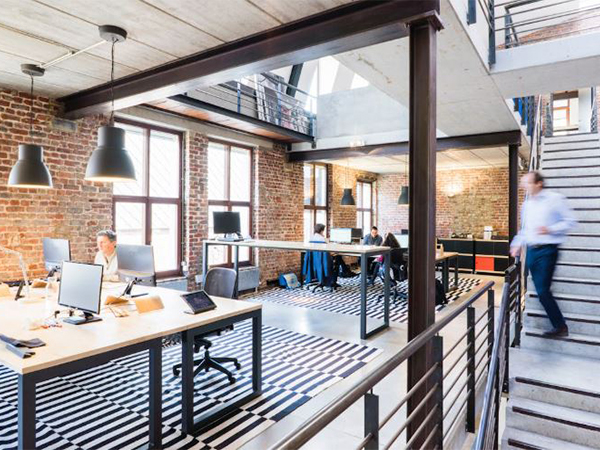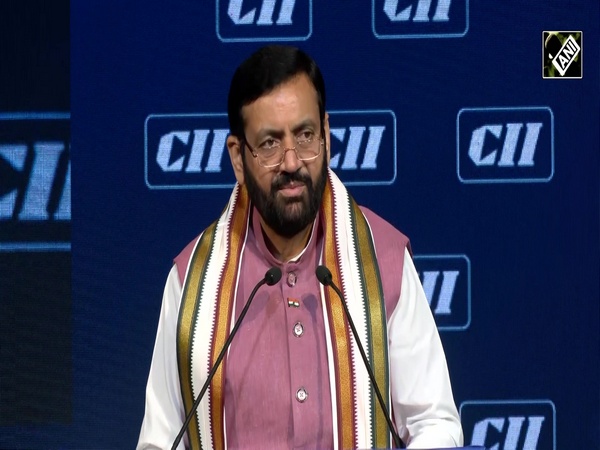
GCCs, AI, fintech firms key to meet coworking players' revenue targets: Enzyme CEO
Aug 31, 2025
New Delhi [India], August 31 : Global Capability Centres, Artificial Intelligence and Fintech firms have emerged as the major drivers of achieving revenue targets of the coworking or flexible workspaces, said Ashish Agarwal, Founder and Chief Executive Officer (CEO) of Enzyme Offices.
Flexible office spaces offer employees a range of options and work environments. Unlike traditional offices with fixed and assigned desk positions, workers in a flexible office space can choose the area of the office that best suits the type of work they need to do at that moment.
Sharing insights into the sector, Enzyme Offices CEO said, "AI-driven firms and fintech companies are showing tremendous growth momentum. Additionally, GCCs have become one of the most promising drivers for the Indian flex space market."
He added that instead of directly investing in traditional real estate, many global players prefer starting with a flex provider like us, as it allows them to test the waters with agility and scale quickly if needed.
Enzyme Offices, a flexible and managed workspace provider, has announced that the company aims to double its revenue in FY26 and achieve Rs 200 crore Annual Recurring Revenue (ARR) by FY27, supported by a planned Rs 50 crore investment in expanding operations, enhancing infrastructure, and strengthening technology capabilities.
Enzyme has already achieved 60 per cent of its FY26 revenue target within the first five months of the financial year, driven by strong demand from both Global Capability Centres (GCCs) and leading Indian startups.
"The fintech companies like Vapar are one of them. The GCCs like Sberbank and Cognite. So these are the major reasons for the growth this year. Plus the fintech. Currently, if you see the major growth is coming from the AI companies, and the related industries, they are growing anything currently," Agarwal said, explaining that firms in these sectors are increasingly tapping flex space companies, ultimately adding to the revenues.
Enzyme currently focuses on metros, with expansion plans centred on Hyderabad and Pune--building on its strong presence in Hyderabad.
Among the many other reasons, he said that the global clients tend to prioritise service quality and brand image and are less price-sensitive. He noted that flexible services and hospitality-like environments are key draws.
"What you will see with GCC is that, particularly for them, the services and the look and feel of the offices become more prominent or matter more than the commercials. They don't mind paying a little extra. They don't negotiate that much. However, as you see the Indian startups, obviously, with the current scenario, they negotiate it a lot," he added.
The flex space segment has emerged as the second-biggest contributor to India's office leasing market in 2024, capturing 19.8 per cent of the annual gross leasing activity and setting a new record of 15.3 million sq. ft.
Technology companies remained the biggest occupiers in India's flexible workspace segment during the first half of 2025, contributing to nearly 50 per cent of total demand, as firms continued to prioritise agility and talent access in a hybrid work environment.
Occupiers in the technology sector remain a cornerstone of office space demand across India's top seven cities, driving Grade A space uptake in both conventional and flex spaces over the past years, said real estate consultancy firm Colliers.
During H1 2025, Tech occupiers leased over 10 million square feet of office space across the top 7 cities, driving 40 per cent of the conventional space demand, the report added.
Bengaluru and Hyderabad, which host India's largest talent clusters, continue to lead tech leasing activity, together driving nearly 50 per cent of the conventional office space uptake in H1 2025.
Global Capability Centres (GCCs)--particularly those in the technology space--continue to drive India's commercial real estate momentum.
Strong domestic leasing, coupled with increasing Grade A space uptake by Global Capability Centres (GCCs), continues to fuel office demand in India.



























